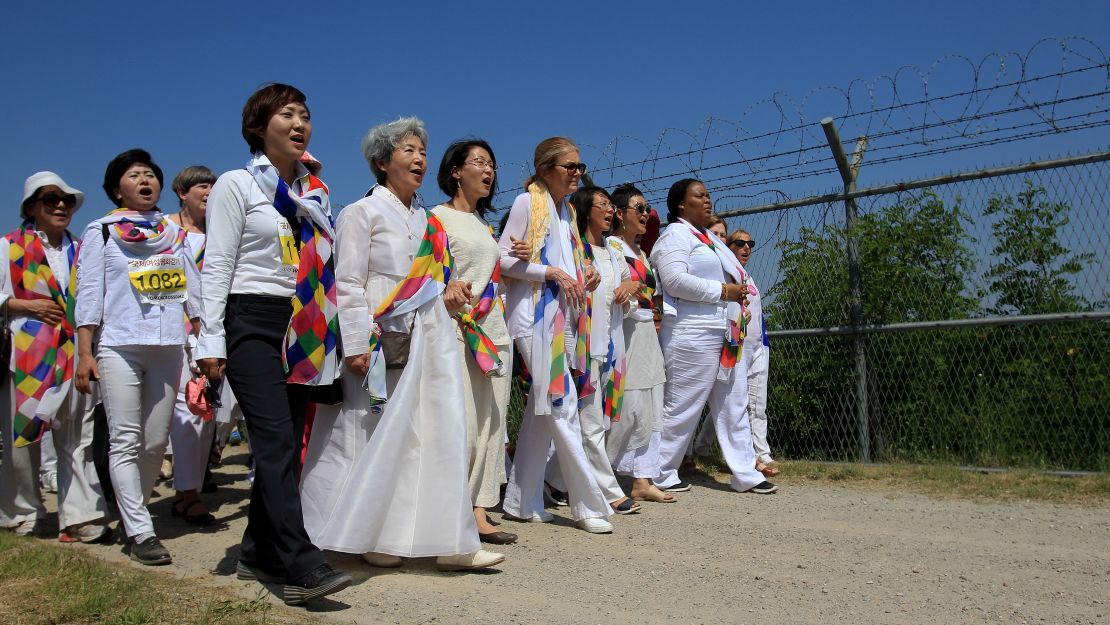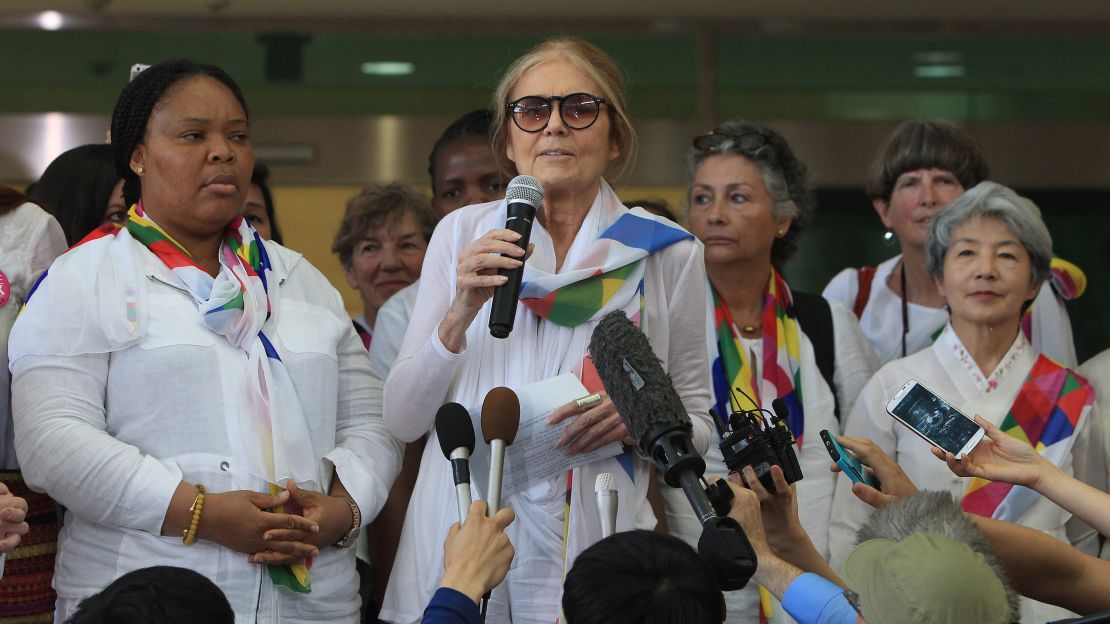Political activist Gloria Steinem was in high school when the Korean War started. Now 85, she is urging politicians to bring it to an end.
In 1950, North Korea invaded the South and war broke out between the two countries and China, the Soviet Union and the United States. Although an armistice was signed in 1953 stopping hostilities, the war never officially ended. As it was in 1953, a formal peace agreement today would need buy in from the US and China.
On Friday, feminist icon Steinem spoke outside the US Embassy in Seoul, urging the US to agree to finally end the war – and include women in the peace process. She’ll also attend a peace forum at the Demilitarized Zone between South and North Korea on Thursday.
“If it didn’t affect women and only affected men, I would be against war anyway,” Steinem, a leading figure of the women’s liberation movement, told CNN in an interview Friday. “But it’s especially important for us to speak because we don’t have decision making power in going to war, and yet we’re affected by war.”
She’s not for a “competition of tears” but says that she thinks women have been more affected by the ongoing war.

According to the United Nations, there is evidence that women’s participation in peace processes contributes to longer, more resilient peace after the conflict ends.
“It’s not that there aren’t militaristic women – there are. It’s not that there aren’t peaceful men – there are, there’s nothing biological about it. Because of the phoney gender roles, I think women don’t have masculinity to prove, so statistically speaking it’s more likely we’ll be able to make a lasting peace,” Steinem said.
CNN reached out to the US Embassy in Seoul for comment on Steinem’s visit.
Steinem and the Korean War
Steinem said the war had a dramatic impact on her life as a young person. She remembers it as a “cataclysmic event,” when it felt like World War II would happen again.
A classmate who was drafted into the Korean War was killed by his father in a murder-suicide, as the father – a World War II veteran – didn’t want his son to go to war, she said.
In 2015, Steinem and a group of 30 female activists caused controversy by crossing the border in a bid to draw attention to the need for peace between North and South Korea, and demonstrate how artificial the divide between the two countries is.
At the time, they called for women to be involved in the peace-building process and for families divided by the war to be united. But human rights activists said the group were ignoring the suffering faced by North Korean people, especially women.

On Friday, Steinem said she was never uncritical of the North Korean leadership which is known for imposing repressive conditions on its people. Instead, she believes it is better to communicate with North Korea rather than leave it isolated.
“We marched to show the world that this conflict no longer needs to separate families, provide excuses for nuclear weapons, and an ongoing expensive US military commitment,” Steinem said in her speech. “We wanted to show the world with our bodies that this border is penetrable and arbitrary. With political will, it is a wound that can be healed.”
Christine Ahn – an activist who organized the 2015 DMZ crossing – agreed, saying that isolating and not engaging with North Korea had only made conditions worse in the country. Christine is one of the four leaders of the Korea Peace Now campaign, a group which partially funded Steinem’s trip to the DMZ. Critics have previously accused Ahn of being too sympathetic to North Korea, an accusation she denies.
Changing politics
There have been some signs recently that the Korean War could come to an end.
Last year, North Korean leader Kim Jong Un and South Korean President Moon Jae-in vowed to bring peace to the Korean Peninsula once and for all. Although both the US and China would need to agree to officially end the war, experts say there is nothing to stop the two Koreas from signing a bilateral peace treaty.
This year, Donald Trump made history by becoming the first sitting US president to set foot on North Korean soil.
Korea was under Japanese rule before and during World War II. After Japan surrendered, the Soviet Union took the role of protecting the north, while the United States did the same for the south.
In 1948, two ideologically opposite countries were established: The Republic of Korea, or South Korea, and the Democratic People’s Republic of Korea, or North Korea. While South Korea became a developed country, North Korea closed itself off, and many of its citizens continue to live in poverty.


